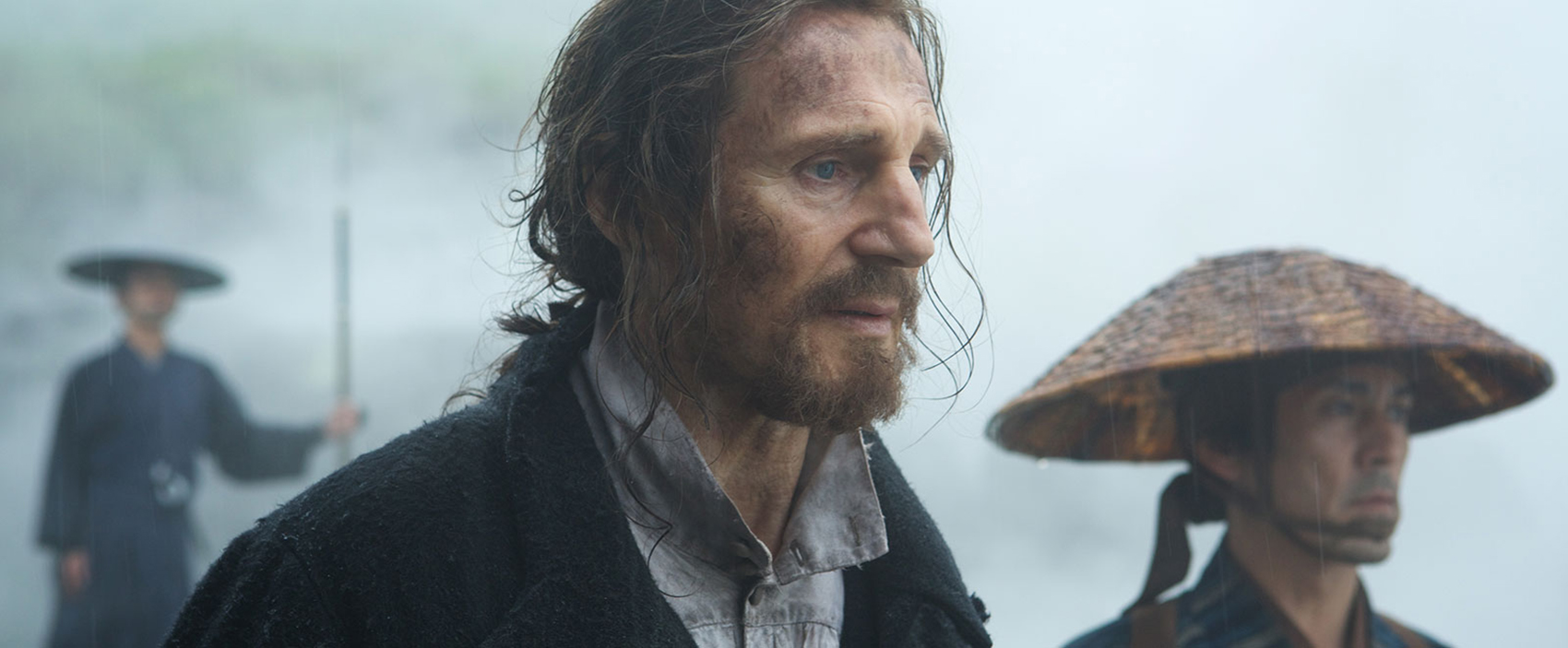

"Silence" is a provocative reflection on Jesus's salvific act
Sebastian Gomes
Sunday, February 5, 2017

(CNS/Paramount Photo: Liam Neeson as Fr. Ferreira, a 17th century Portuguese Jesuit missionary who renounced his faith under pressure from Japanese officials and in the face of unthinkable persecution, from Martin Scorsese's 2016 adaptation of "Silence")
There was much anticipation in the church world for Martin Scorsese's film adaptation of Shusaku Endo's historical fiction novel, "Silence". The movie premiered late last year and made its way to select theaters across Canada in January 2017. The movie follows two young Portuguese Jesuits to Japan, after they hear that one of their spiritual mentors, Fr. Ferreira, has apostatized in the face of vigorous persecution. The young priests, zealous for God and the pastoral care of Japanese Christian converts, sneak around remote areas of Japan in search of their confrere.
SPOILER ALERT! This article analyses Endo's central theme and the conclusion of the story.
I read Endo's book back in 2014 after hearing production of the film was nearing conclusion. It was a captivating read, especially the conflict that arises in Fr. Sebastião Rodrigues, one of the young Jesuits and the main character, who's faith is challenged to the core. The central theme of the book only emerges at the end when, after finding Fr. Ferreira and criticizing him for betraying the faith (the Japanese had successfully pressured him to step on an carved image of Jesus, thereby committing apostasy), Rodrigues himself commits apostasy in the same manner. It's the central theme that I'd like to briefly reflect on. In many conversations about the film, people point to the fact that Japan is portrayed as a country where Christianity cannot take root and grow. In fact, they see the moral of the story as a push back on the traditional impulse of Christian evangelization: that if only the Gospel is presented to a person in the right way, they will see the truth of it and convert. Being Japanese himself, they told me, Endo knew that historically his countrymen had encountered Christianity but made a conscious and informed decision that it wasn't for them. Certainly this is one of the provocative themes of the book that comes out in the film, and is worth reflecting on. But it wasn't Endo's central theme, in my opinion. And after a number of these conversations that focused primarily on a critique of Western Christian evangelization, I think it's worth pointing this out. The conflict in Rodrigues that I alluded to above, builds as his religious framework for understanding martyrdom, his own priesthood, and even God, crumbles under persecution. When he's captured and refuses to apostatize, the Japanese officials torture and kill the Japanese Christians he's ministering to. As the Inquisitor tells him on one occasion, "the price for your glory is their suffering." This creates a crisis of conscience in Rodrigues. While he would gladly suffer martyrdom for the glory of God, he cannot understand why God would allow such suffering of the simple villagers. At the very end of the film he reaches a breaking point as he learns the villagers themselves had renounced their faith by stepping on an image of Jesus, but would continue to be tortured until he apostatized as well. In the moment of his final decision to step on the image of Jesus, which relieves the suffering of the villagers, Rodrigues experiences a powerful moment of conversion and consolation. He realizes that only Jesus can bear the burden of human suffering and give it meaning. He had been taught, and believed, that God's strength and glory were demonstrated when he, a priest, testified to the faith under threat of torture and death. Now he realized that God's strength and glory were demonstrated in the act of being mocked and rejected, even by his professed followers. Jesus alone could mercifully endure Rodrigues's apostasy. At the heart of Endo's book and Scorsese's film is a fundamental tenet of Christianity: Jesus's salvific sacrificial act was unique. He carried the burden that we could not. He came to save us because we couldn't save ourselves. This is a spiritual leap for Rodrigues, and is a challenge for anyone trying to live the Christian life. We may not find ourselves in a dangerous or life-threatening predicament, but "Silence" is a powerful artistic reminder that God is love and mercy, and uniquely so, in relation to our human condition.Related Articles:
<<













